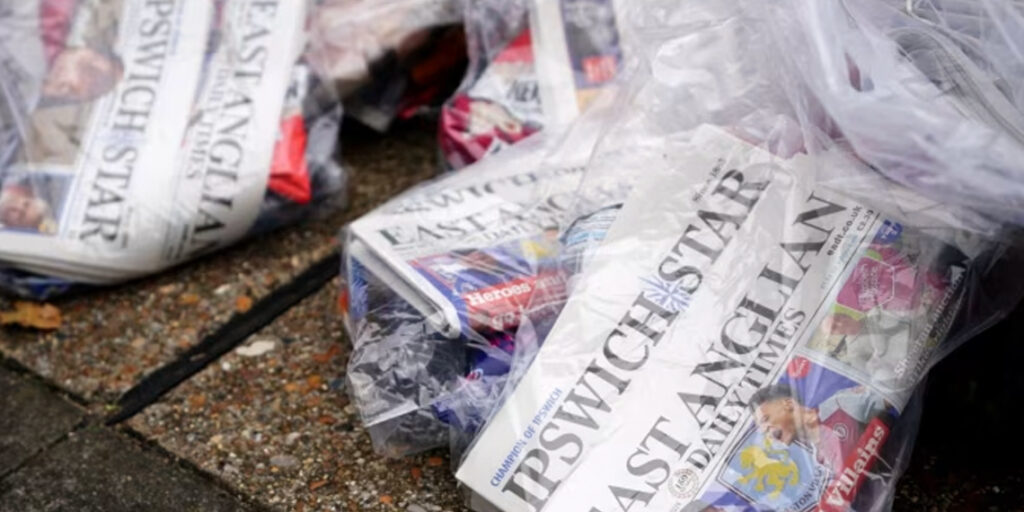A new House of Lords committee report has raised alarms that UK news coverage is at risk of “fracturing irreparably” within the next decade due to the growing divide between high-quality, paid journalism and the increasing reliance on “dubious online sources” by the public.
The committee has warned that the future of news in the UK is under threat, with potentially severe implications for both society and democracy.
In its report on the future of news, the House of Lords communications and digital committee highlighted the deteriorating economics of mass-market journalism.
They noted that this crisis is being exacerbated by the growing influence of tech companies that use content without proper attribution, resulting in further financial pressures on traditional media outlets.
“There is a realistic possibility of the UK’s news environment fracturing irreparably along social, regional and economic lines within the next 5—10 years,” the committee warned.
It called on the government to take urgent action to prevent the creation of a “two-tier” media landscape that could limit access to reliable information for many citizens.
One of the main concerns raised by the committee is the emergence of “news deserts” across the UK. These are areas where local newspapers have folded due to financial strain, leading to a significant loss of local journalism.
The report also noted that cuts to BBC radio and television services have intensified this issue, leaving many communities with little access to vital local news coverage.
Between 2010 and 2020, local news outlets lost 70% of their advertising income, further weakening their ability to produce quality journalism.
In light of these challenges, the committee recommended that the government consider offering tax breaks for local media groups that employ journalists and launch initiatives to support journalist training.
A key issue identified in the report is the role of major US tech companies in the news sector. These firms are using generative artificial intelligence (AI) to scrape news content and provide summaries, which are further diminishing revenue streams for traditional media outlets.
The report noted that these AI-generated summaries give tech companies “unprecedented influence over the type of news we see,” and could further marginalise established news providers.
The report calls for the government to consult on new measures to protect journalists’ rights, including proposals for content creators to “opt out” of allowing their work to be used by AI firms. However, there are concerns within the creative industries about whether this opt-out scheme would adequately protect copyright.
The committee has urged ministers to update UK legislation to ensure that news providers are granted proper copyright protections, which would allow them to negotiate fair deals with AI companies.
It also recommended that the Competition and Markets Authority (CMA) investigate whether big tech firms are exploiting their dominant position by using news content to train AI models without fair compensation.
Furthermore, the committee has advised that Ofcom’s rules on media plurality be revised to account for the growing influence of AI in generating news. This would ensure that regulations are fit for purpose in a rapidly changing media landscape.
Baroness Tina Stowell, chair of the committee, stressed the need for “decisive action” from the government. She said: We need decisive action from the government, and soon, to put the right legal and competition framework in place. This is key to ensuring that the news industry can adapt and thrive.”
Owen Meredith, chief executive of the News Media Association, welcomed the committee’s recognition of the importance of copyright and intellectual property (IP) to the creative sector. He also expressed concerns over the potential flaws in the proposed opt-out regime for publisher content.
The committee’s recommendations are now with the government, which has two months to respond and consider the necessary actions to secure the future of UK news coverage.


